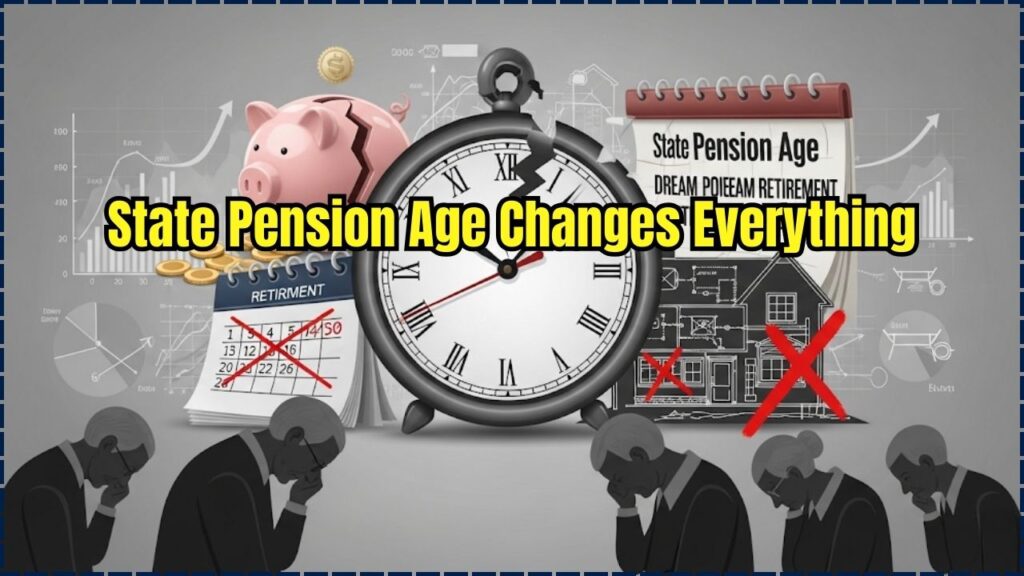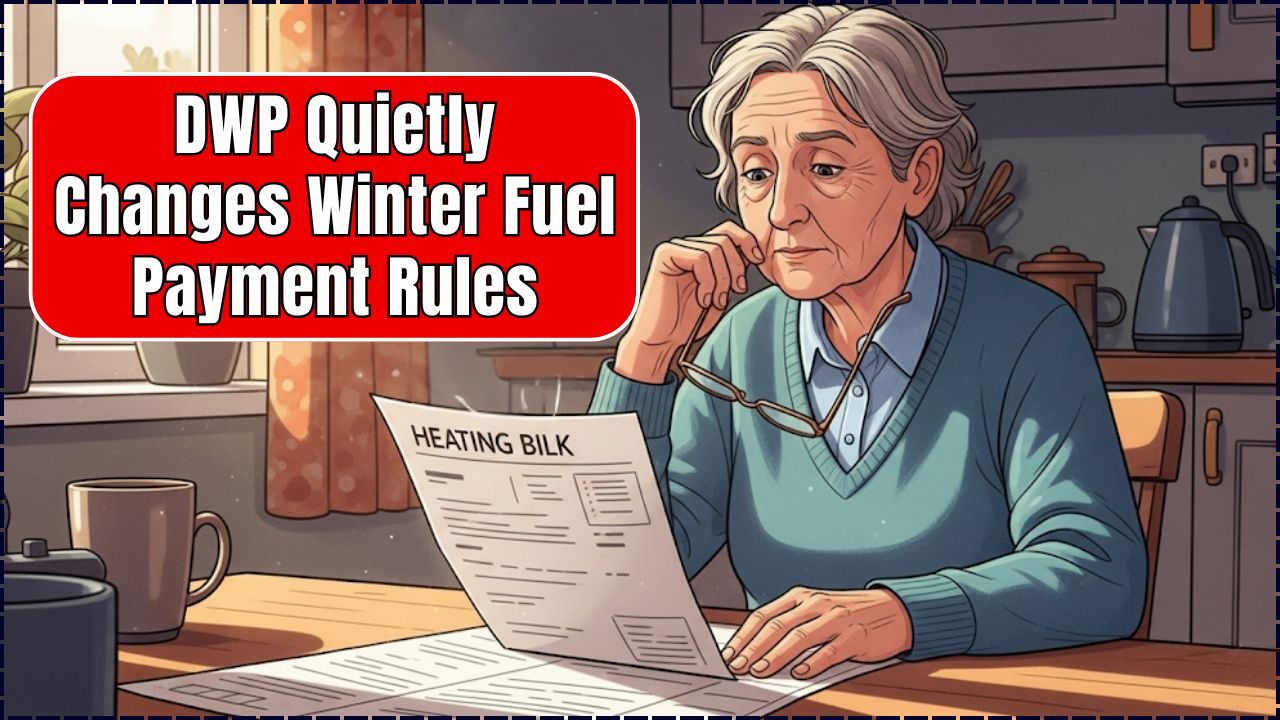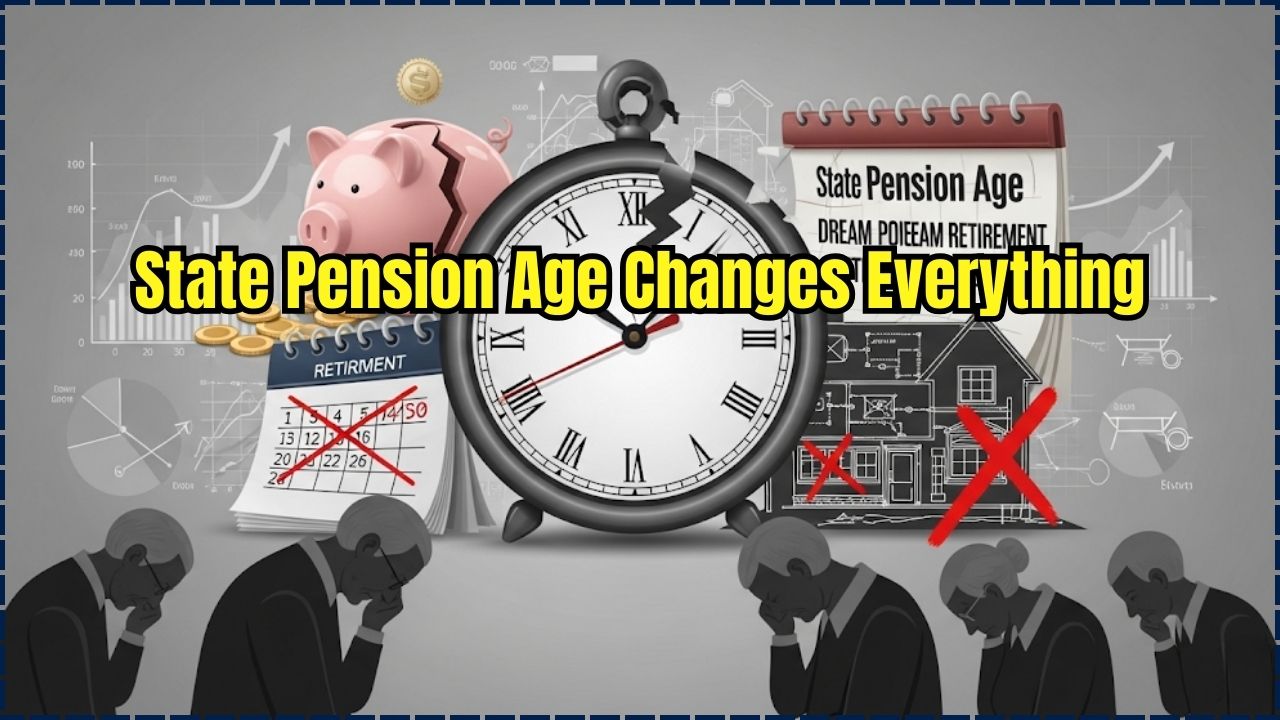If you’ve been counting down the days until you hit State Pension Age, thinking it’s your golden ticket to a life of fishing trips, coffee mornings, and finally putting your feet up — you might be in for a surprise. When you reach that magic number, some benefits you rely on today might vanish faster than frybread at a powwow.

This guide will walk you through exactly what changes, what you’ll lose, what you’ll gain, and how to prepare so you’re not caught off guard — with practical examples, a bit of plain talk, and the most up-to-date facts.
State Pension Age Changes Everything
| Topic | Details |
|---|---|
| Current State Pension Age (2025) | 66 for men and women |
| Planned Increase | Rising to 67 between May 2026 – March 2028; 68 planned for 2044–2046 (possible earlier change) |
| Major Benefits That Stop | Universal Credit, Income-based JSA, ESA, Income Support |
| Disability Benefits | New claims for PIP/DLA not accepted after pension age; existing claims continue |
| New Perks | State Pension, Pension Credit, Winter Fuel Payment, Free TV Licence |
| Potential Loss if Age Rises Early | Up to £18,000 for people currently aged 51–53 |
Hitting State Pension Age changes the benefits landscape — some stop, some stay, and new ones kick in. The key is knowing your date, understanding what’s ending, and planning for a smooth financial transition. Whether you’re years away or almost there, the earlier you prepare, the better.
A Quick Look Back: How Pension Age Has Changed
The State Pension Age hasn’t always been 66. Here’s a short history:
- 1940 – Women could claim at 60, men at 65.
- 2010–2020 – Gradual equalisation of pension age for men and women.
- 2020 – Age rises to 66 for everyone.
- 2026–2028 – Will rise to 67.
- 2044–2046 (maybe sooner) – Scheduled to rise to 68.
Why the change? People are living longer, meaning more years of pension payments — which costs the government more.
What Benefits Stop When You Reach State Pension Age
Reaching State Pension Age means saying goodbye to certain working-age benefits:
1. Universal Credit
Stops once you (or your younger partner) hit pension age.
2. Income-Based Jobseeker’s Allowance (JSA)
Designed for those seeking work before retirement age.
3. Income-Related Employment and Support Allowance (ESA)
For people unable to work due to illness/disability before pension age.
4. Income Support
Ends when you’re officially in retirement age territory.
Disability Benefits: What Stays, What Goes
You can’t make new claims for these after pension age:
- Personal Independence Payment (PIP)
- Disability Living Allowance (DLA)
But — if you already get them before pension age, you can keep them.
What You Gain at State Pension Age
It’s not all bad news. Here’s what starts coming in:
- State Pension – Around £221/week if you have 35 years of full NI contributions.
- Pension Credit – Tops up low incomes to £218/week (single) or £333/week (couple).
- Winter Fuel Payment – £100–£300/year automatically.
- Free TV Licence – Over 75 and on Pension Credit.
Before & After Pension Age — Benefits Comparison
| Benefit | Before Pension Age | After Pension Age |
|---|---|---|
| Universal Credit | Yes | No |
| ESA (income-related) | Yes | No |
| Jobseeker’s Allowance | Yes | No |
| Income Support | Yes | No |
| PIP/DLA (new claim) | Yes | No |
| PIP/DLA (existing claim) | Yes | Yes |
| State Pension | No | Yes |
| Pension Credit | No | Yes |
| Winter Fuel Payment | No | Yes |
| Free TV Licence | No | Yes (if eligible) |
Real-Life Scenarios
Case 1: Maria, age 66, single
Maria’s been on Universal Credit. Once she hits State Pension Age, UC stops, but she starts getting the full State Pension and Pension Credit, which actually gives her a little more each month.
Case 2: John & Linda, couple
John is 68, Linda is 64. They still get Universal Credit because Linda hasn’t reached pension age yet. Once she does, UC ends, but both get State Pension.
Case 3: Sam, age 67, disabled
Sam’s been on PIP for years. He keeps his PIP after pension age and now also gets State Pension.
Tax Implications: Don’t Get Caught Off Guard
Your State Pension is taxable income — but it’s paid without tax deducted. If you keep working, or have other income, you might need to pay more tax. HMRC will usually adjust your tax code, but it’s worth double-checking.
Step-by-Step Guide: Preparing for Pension Age
- Check your pension age – GOV.UK tool
- Review benefits – List what you get now, mark which will stop.
- Fill NI gaps – Buy voluntary contributions if needed.
- Boost private savings – Don’t rely only on State Pension.
- Apply for Pension Credit – Even a small top-up can unlock extras.
Myth-Busting: State Pension Edition
- Myth: Everyone gets the same pension.
Truth: Amount depends on your NI record. - Myth: You can’t work after pension age.
Truth: You can work and claim — it may affect tax. - Myth: Pension Credit is only for people with no savings.
Truth: You can have some savings and still qualify.
Benefits You’ll Have to Say Goodbye To
| Benefit | Pre-State Pension Age | At or Post-State Pension Age | What’s the Change? |
| Pension Credit | Not Applicable | Available to those on a low income at State Pension age. | You have to wait longer to apply for this vital top-up benefit. |
| Attendance Allowance | Not Applicable | Available for people with a disability who need care. | This benefit is specifically for people who have reached State Pension age. If you need it earlier, you’ll need to apply for other benefits like Personal Independence Payment (PIP). |
| Winter Fuel Payment | Not Applicable | Available to help with heating costs. | This is a pensioner-specific benefit, meaning you can’t claim it until you hit the new, higher State Pension age. |
| Bus Pass | Eligibility varies by local council. | In England, you can get a free bus pass when you reach State Pension age. | The age for a free bus pass is now linked to the rising State Pension age, so you’ll have to wait longer. |
Top 3 Mistakes to Avoid
Don’t get caught out by the changes. Here’s what to watch out for:
- Mistake #1: Not checking your State Pension age. Don’t assume you know your retirement date. The age has changed multiple times and your specific date of birth could mean a later retirement than you expect. Use the official calculator to be certain.
- Mistake #2: Forgetting to check your National Insurance record. You need enough qualifying years to get the full State Pension. Check your record regularly to see if you have any gaps and if it’s worth making voluntary contributions.
- Mistake #3: Not planning for the gap. The delay in receiving your State Pension means you need to plan for a potential gap in income. Waiting until your State Pension age might be too late. Start saving into a private pension or other investments now to bridge that gap.
Pro Tips for Professionals
- HR managers: plan for flexible retirement options.
- Self-employed workers: check your NI record — gaps are more common.
- Financial planners: factor in potential pension age rises for clients under 55.
FAQs
Q1: Can I delay my State Pension?
Yes — delaying increases it by about 5.8% per year deferred.
Q2: Do I have to apply for the State Pension?
Yes — it’s not automatic.
Q3: What if I live abroad?
You can still get your pension, but increases depend on where you live.












